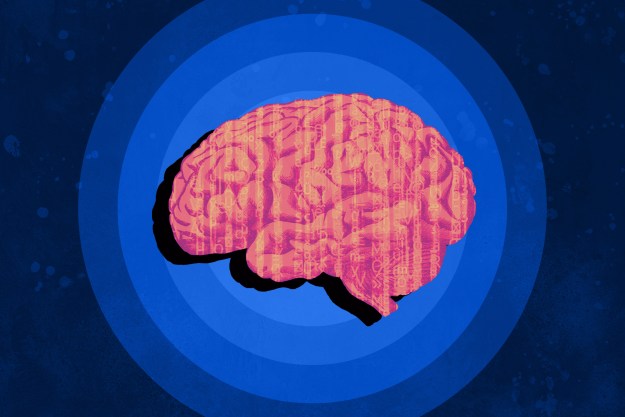A collaboration between Massachusetts Institute of Technology researchers Katia Vega, Xin Liu, Viirj Kan and Nick Barry and Harvard Medical School researchers Ali Yetisen and Nan Jiang, the Dermal Abyss demonstrates the enormous potential of culturally and medically integrated biosensing tattoos, which change color to signal changes in the body’s metabolism. Part tech demo and part philosophical inquiry, the work raises questions like whether we might be willing to publicly display protected health information in exchange for easier access to knowledge of our own bodies.
“The utilization of tattooed biosensors can provide measurements of biomolecules for continuous monitoring,” Vega told Digital Trends “We replace traditional inks with biosensors that colorimetrically index the concentration of sodium, glucose, and H+ ions (pH) in the interstitial fluid of the skin: the pH sensor changes between purple and pink and the glucose sensor between blue and brown; the sodium and a second pH sensor fluoresce at a higher intensity under UV light. Some examples would be for diabetes, dehydration or controlling a pH levels. This work shows the potential of tattooing biosensors in the skin for applications in medical diagnostics, quantified self, and data encoding in the body.”
At present, the biosensing inks have been limited to tests on pig skin, although Vega says that response from the general public has been extremely favorable — suggesting that there is a definite market here, should someone be willing to capitalize on it.
“We are glad to have a positive response from the public to this project,” she said. “In the same way that the wearables industry is integrating fashion practices in their development, we envision new partnerships between the biotech companies and skin professionals such as prosthesis experts and tattooists in order to embrace the idea of human-device symbiosis. The purpose of the work is to highlight a novel possibility for biosensors rather than bring a medical device to market. As such, there are currently no plans to develop The Dermal Abyss as a product or to pursue clinical trials.”
Editors' Recommendations
- Vulnerability steals data from Intel and AMD CPUs — and you’re probably affected
- This is how you work off festive excesses — if you’re in space
- PAW Patrol dogs will get you where you’re going with new Waze feature
- If you’re after a PS5, you might have a chance to get one from Target tomorrow
- Android 11 is now rolling out to some Samsung Galaxy phones, if you’re lucky


